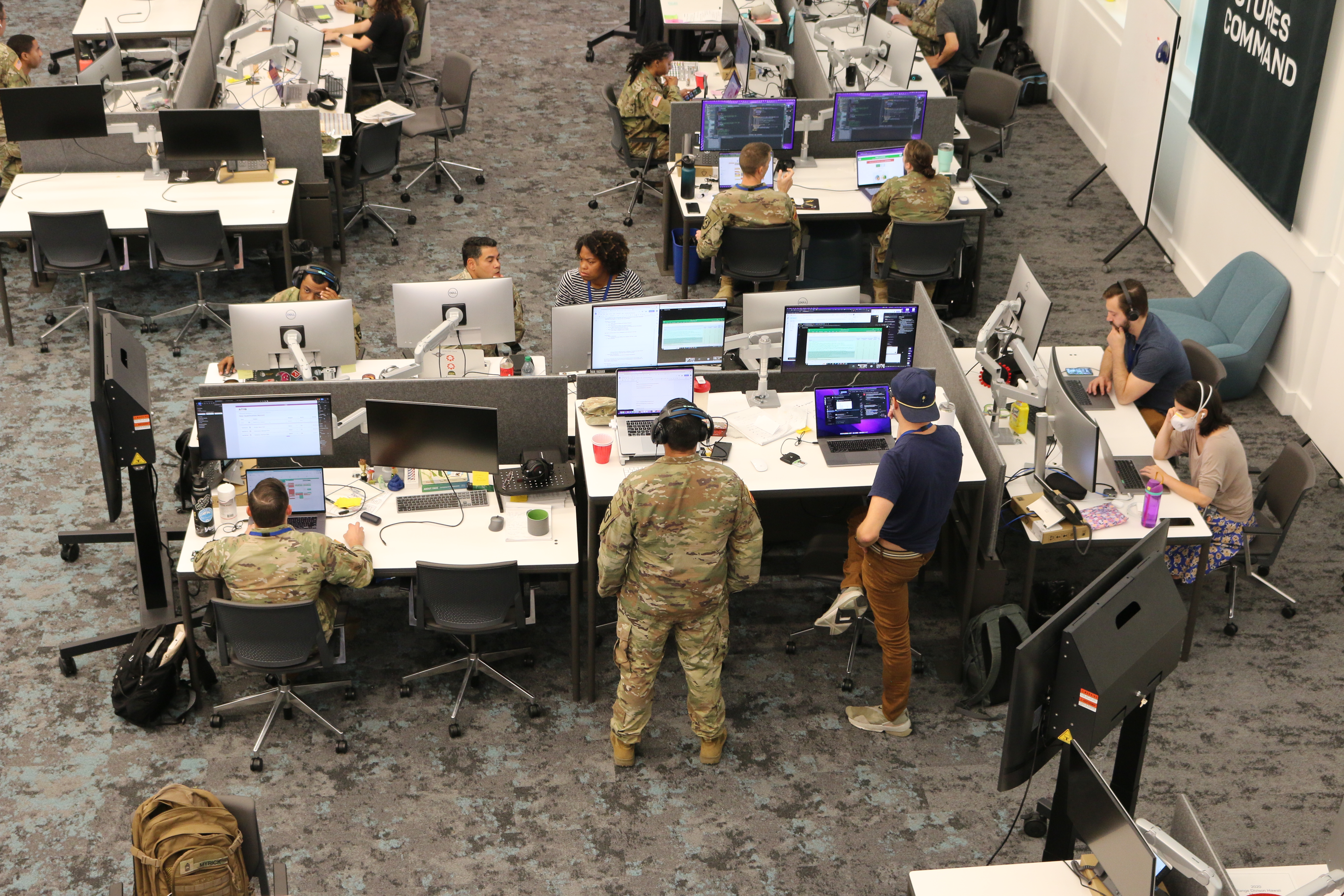
BLACK BELT: With the growth of interest in competition, there has been a lot of criticism about how tournaments are set up. What are the basic problems?
Parker: Uppermost is the fact that there are no uniform rules from one tourney to another. This is really a problem — a man could win in one tournament through one way and lose out in another.
Norris: It’s getting better, but it needs improvement.
Parker: What I mean is that in one tournament, the karateka making contact by accident will be disqualified, while in another tournament, he will just get a warning.
BLACK BELT: You mean the participant must know how to control his punches in order to score with the judges?Parker: If the man is a good, skilled participant, he will have control of his weapon. Let’s say in the green- and white-belt [divisions], there’s accidental contact. That’s understandable. But in the black- and brown-belt divisions, there shouldn’t be contact, but they often have it.
Norris: The fighters ought to be disqualified because the lack of control resulting in contact means that the participant isn’t qualified. It takes plenty of training before a man is ready to participate in a tournament, and this control is more difficult to develop than lack of control.
BLACK BELT: This lack of contact must make for difficult training methods. After all, karate is supposed to teach you how to arm yourself against an opponent, and if you learn to check yourself, to pull your punches, isn’t it defeating your ability to strike?
Norris: First, let me say that when a fellow gets a broken nose in a tournament, or even in practice, he’s liable to have a sour taste in his mouth. He might quit participating because of it. When I go to a tourney, I like to believe that I’m going to come out of it at least somewhat unscathed.
Parker: Well, there are accidents. …
Norris: Sure, but he’s talking about intentional strikes. Look, when a man is pulling his punches, he’s not just pulling his punch. He’s got an explosive thrust there, and you know just by looking at it that he could follow through. It’s that mark of control — not following through, though you could — which distinguishes the better man.
Demura: We must remember that karate as it is practiced in a tournament is a sport. Control is basic to the practice. I remember one tournament in Japan. I was hit accidentally and got two black eyes. Accidents happen there, and I’ve seen many men get bloody mouths and broken teeth. But this is an accident, an example of the lack of control.
BLACK BELT: But doesn’t this control factor make the tournament dull to the American viewer who wants to see bloodshed?
Parker: Well, of course — if he’s that guy who goes to boxing matches and yells, “Kill him!” But to the person who knows karate and understands the lack of contact and the full control, it’s part of the rules.
Demura: Whenever I am a referee in a tournament, I do not hesitate to score against a man who makes contact because that is simply poor technique.
BLACK BELT: How do you train for control? When you’re working with a bag, you’ve got to hit it.
Norris: There are practice sessions with an opponent, too. A partner can help you practice your control.
Demura: I believe that most of the injuries, at least half of them, are the judge’s fault. When he sees that the blows are getting too close, he should warn the man.
Parker: We have to be aware of the entertainment value to the spectator, for sure, but this comes in part with education of the spectator. We also have to talk about the length of the tournaments. They’re just too long.
Norris: All of this waiting also takes its toll on the participants.
Demura: The players get tired, and by the time of the last match, they’re too tired to perform as they might have performed earlier.Parker: I’ve seen battles where — well, Chuck here has gone on so late that in one match, he won, not taking anything away from his technique, but he won on stamina.
Norris: But stamina is part of a man’s technique. This is part of his conditioning and this waiting, the tension of planning on participating, is pretty difficult, though.
Parker: You can train a man to fight karate, but that waiting is terrible.
BLACK BELT: How many months does it take before a man is ready to take part in a tournament?
Norris: That depends. Some fellows really come up fast, learn the techniques and are advanced over their fellow students.
Parker: I would say about a year for most of them.
Norris: Some guys make it in nine months.
Parker: You start them in, but it’s about another three months before you teach them how to free fight.
Norris: Yes, I suppose.
Demura: I believe in [teaching] basic sparring techniques before their green-belt competition, then after they have earned their green belt, they go on with free sparring. If you advance them too fast, you find they’re pushing and shoving and it’s not right.
BLACK BELT: Who makes the decisions about who should enter the tournaments?
Parker: Naturally, the sensei since he knows which students are ready. There are many schools, many dojos, where every student [is] thrown into competition. That’s ridiculous. I choose the best to represent my dojos.
BLACK BELT: What are some other things that need to improve?
Parker: You’ve got to consider the environment of the tournament. You’ve got to know who is sponsoring the tournament and the rules of the sponsors. You want to know who the judges will be.
Norris: Especially if they’re from a certain school and they have certain training. Frankly, I enjoy going up against a person from another school with different training methods. This is where we are really pitted against each other, and I try things which my students may know but which my opponent may not.
Parker: Let’s face it — that’s where the fun is. Competition is wonderful, and every player wants to get in. The tournament is important because the first incentive is the belt classification, but that soon loses its appeal. The tournament is the thing.
Demura: This last year was my first year for my tournament under the sponsorship of the University of California at Irvine, and it was really well-supported. The students loved it, and so did the spectators.
Parker: Going on the mat and facing your opponent — really trying to figure him out, outguess him — that’s the beauty of it.
Norris: And there’s sportsmanship there.
Parker: We used to have the players come out and meet each other cold, but now we have them meet each other before the match, when we’re selecting the competitors, and it’s really quite nice. When a point is scored against them, they’ll say, “Oh, you lucky dog!” or “Good shot!” and that’s really what it’s all about.
BLACK BELT: But are tournaments really helping the participant since he may not get a chance to know his opponent, may not get a chance to get in a lucky punch? Isn’t it better not to know your opponent and then, when you get on the mat, you go all-out?
Norris: The meetings and the friendliness have nothing to do with their effort on the mat. When they get to work, it’s all business.
Demura: And if karate tournaments are a sport, then you must have sportsmanship.
BLACK BELT: Is there a lack of showmanship at tournaments?
Norris: To some extent, you need showmanship, but you’ve got to admit that interest in tournaments is growing, and since I came into the field, interest has grown at least 10 times to what it was then. And this is without any special showmanship.
Parker: He means like in boxing or in football — things like that. The thing that it needs is something I plan to introduce: a sports announcer to tell the audience what is going on.
Norris: Sounds like a good idea.
Parker: If you have a man calling the shots — like a blow-by-blow announcer on the radio, tell the audience why the fellow got this point, somebody who can speak fast enough to describe it — I think that’s pretty good.
Demura: Much of the showmanship, as you call it, actually is in Japan where they have one major tournament which everybody looks forward to and where they have local eliminations. In this one tournament, there are as many as 56 different styles all being put into competition.
BLACK BELT: But they must have many different contests going on at the same time.
Norris: Sometimes they have as many as 12 contests going on at once.
Demura: But you see people are already interested in the martial arts, and they know about these tournaments.
Parker: That’s what I mean about education. We have to bring the martial arts down to the level of what the American spectator is used to seeing. Now, I took some film of the International Competition, and I’m going to have four videotape cameras running at my next tournaments and have — like in football — a video playback of key plays. This will tell everyone what’s happened, and the audience will be able to see the penalty and see the score.
BLACK BELT: Are there any things that could make contests more interesting?
Norris: One thing, certainly, would be to stop all of the running around the opponents do.
Parker: And penalize all of the actors in the contests. …
BLACK BELT: Actors?
Norris: That’s really something to watch. They pretend that they’re hit in a match, but they’re not. They just want to disqualify you.
Parker: Sometimes … the guy will pretend that he’s been hit and will start crying and shouting that he’s hurt, but out of the side of his eyes, he’s watching the judges to see if they’ve noticed.
Norris: One time, I saw it … a fellow acted like that and disqualified another player, but as soon as the match ended, he was back, bouncing around as if nothing had happened.
BLACK BELT: I would imagine that the choice of referees is important, referees who wouldn’t fall for that.
Norris: The selection of qualified referees is important to the match. Too many referees and judges really don’t have individual opinions.
Parker: Look at them, and they say one thing, and then when another judge says another thing, they change their mind. I’ve seen them raise one flag, look at their fellow judge, and then raise the other flag and try to dismiss their first ruling. A lot of them are just “me, too’ers.”
Demura: The one who is a referee should be the highest-ranking black belt so that he knows what is going on. Unfortunately, there is too much dissension here, too many judges who don’t judge fairly and accurately.
BLACK BELT: Is a “hard” judge more respected than an “easy” judge?
Norris: I don’t think that’s the question here. Really, a happy medium is the only answer. Too many judges are set in their ways and won’t yield. For example, many judges won’t score you on a front kick and reverse punch, but others will and I think they should. One of the things necessary in a useful tournament would be a set of rules which are abided by at the beginning. I also think that the man who is thinking of setting up a tournament should meet with the dojo senseis in his area and work out the terms of judging. When I set up my tournament, I received a lot of advice from Ed, here. His experience was invaluable.
Parker: You’ve got to ask [for] advice, and advice should be given freely. After all, even though Chuck and I may have different tournaments, I want him to succeed because when he succeeds, that increases the interest in karate and in tournaments. I know that when Chuck has a tournament, or Fumio, I want to be there and I encourage my students to go. We get together on the dates so that the tournaments don’t conflict. Timing is very important in the success of a tournament. You don’t want them scheduled too closely because, frankly, the audience and the students couldn’t afford to go.
Demura: l agree. When I set up my first tournament at the university, I found many good answers to my questions, but I did introduce something of my own. I think you should find something which you can contribute. In the lower ranks, the green- and white-belt competitions, I set up the contests for team play. In football, baseball and other sports, it is the team, and certainly in the early stages of the participants’ competition, the team method is very good.
Parker: The tournament situation is constantly evolving. I plan to have my competitions set up in rounds like in boxing. Maybe two rounds per match, about three minutes each. Whatever system is used, basic rules should be set up so that one man going to many tournaments can train and know what will bring him points and what won’t. Too often, the guy goes in and then it’s all over in a matter of seconds. He’s either won or lost, and the audience feels cheated.
BLACK BELT: Should a man setting up a tournament start off small?
Norris: He should decide based on the number of people he thinks will participate and come to watch. Frankly, if he rents the high-school gymnasium for one night, maybe at $100, that should be sufficient to start off.
Parker: Too many guys want to start at the top at a big arena. That depends, really, on where you’re going to have it. What [region] are you in and how many dojos will be represented from that area?
Norris: No matter what size he starts off with, it’s a big undertaking. I would rather see an overcrowded gymnasium than one big auditorium with few people.
Parker: When I started my tournaments, there were no tournaments at that time. l needed a lot of publicity and I had a large market to draw from. I spent all of $12,000 my first year. Fortunately, I broke even.
Norris: You really don’t have to spend that much these days. If you’re in a large area where they’ve had tournaments or even a small area where they’ve never had tournaments, you must count the contestants and then the schools in your area.
Demura: Fortunately, when I set my tournament up at the university, the expenses were taken care of. The audience were the students, and the publicity was the student newspaper.
BLACK BELT: Is there sufficient interest for more tournaments to be set up?
Parker: Definitely. I would encourage anybody to have a tournament provided they set them up with uniform rules. They should invest in valuable trophies and prizes. I know that Henry Cho presented individual trophies, and that created interest. He also presented a color television set to the winner. His tournament was well-planned and well-promoted.
Norris: I’ll tell you how important the setting up and organization is. Last year at a new tournament, l competed and won, but it was so poorly managed that it left a bad taste in my mouth. This year when it was staged, I didn’t even go back to defend my crown. I just passed it up, and believe me, I love tournaments. However, I understand from those who were there that the tournament was even worse this year. Now, that helps kill a tournament both for the competitors and the spectators.
Parker: If they go to one tournament and they don’t like it, they just dismiss all competitions. We who are interested in the support of the people cannot afford to lose one spectator.
Tournaments, Chuck norris, Fumio demura, Ed parker, Karate
Black Belt Magazine
[crypto-donation-box]







